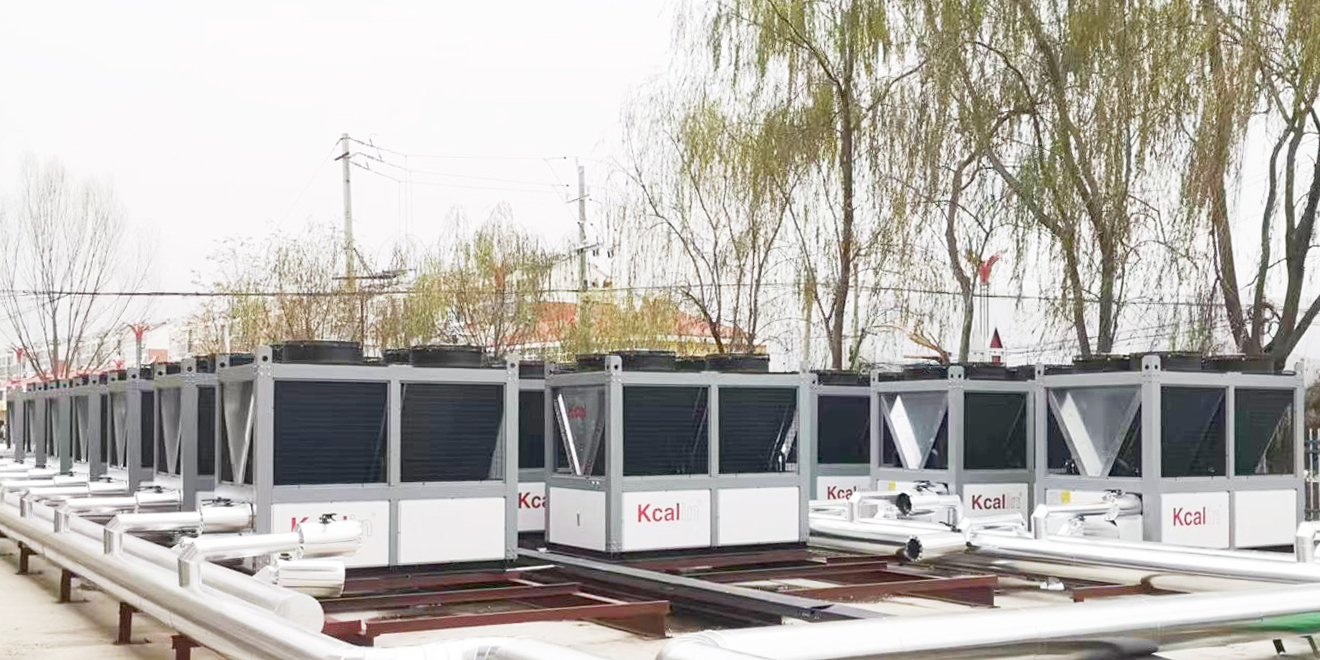With the continuous increase in energy consumption and increasingly severe environmental issues, energy conservation and emission reduction have become common challenges. In this context, the development of new energy technologies is receiving increasing attention. As an environmentally friendly and efficient heating and cooling device, air source heat pump has become a leader in energy-saving heating equipment in the future.
Air source heat pump is a device that utilizes natural heat energy to achieve heating and cooling. Its working principle is similar to the reverse refrigeration cycle process, mainly including the following steps:
Air heat absorption: Air source heat pumps absorb heat energy from low-temperature air through outdoor evaporators, and can still extract heat from the air even in low winter temperatures.
Compression heating: The absorbed low-temperature heat energy is compressed through the compressor, causing its temperature to rise, resulting in the generation of high-temperature and high-pressure refrigerant.
Heat exchange release: The high-temperature and high-pressure refrigerant releases heat energy through the indoor condenser, which is transferred to the indoor heating or cooling system to achieve indoor temperature regulation.
Refrigerant recycling: During the heating or cooling process, the refrigerant undergoes phase change, and through the collaboration of components such as evaporators, compressors, and condensers, the refrigerant is recycled and reused.
The advantages of air source heat pumps

Environmental protection and energy conservation: Air source heat pumps utilize natural heat energy in the air for energy conversion, eliminating the need to burn fossil fuels and generating direct emissions of carbon dioxide and pollutants. Compared to traditional fuel and coal-fired heating methods, air source heat pumps have significant environmental advantages.
Efficient performance: The COP value of an air source heat pump is usually above 3.0, which means that for every 1 unit of electricity consumed, it can generate 3 units of heat. Its efficient energy utilization rate significantly reduces energy consumption, saving users energy costs.
Strong adaptability: Air source heat pumps can operate stably under different climatic conditions, and can maintain efficient operation even in extremely cold regions. This makes air source heat pumps a heating and cooling solution suitable for various geographical environments.
Convenient installation: Compared with traditional boiler heating systems, air source heat pumps do not require independent chimneys and gas pipelines, making installation more convenient. This provides more heating options for cities and newly built communities.
Reversible operation: Air source heat pumps can not only provide heating, but also achieve winter cooling function. This Dwifungsi makes it a versatile device all year round.
The Important Role of Air Source Heat Pump in Energy Conservation, Emission Reduction, and Environmental Protection
Energy conservation and emission reduction: Air source heat pumps, with their efficient energy utilization and environmental protection characteristics, have become an ideal choice to replace traditional heating methods. Compared to coal-fired and oil-fired boilers, air source heat pumps can reduce energy consumption, reduce greenhouse gas emissions such as carbon dioxide, and contribute to urban energy conservation and emission reduction.
Improving air quality: Traditional heating methods that burn fossil fuels produce a large amount of particulate matter and harmful gases, seriously affecting air quality and health. The air source heat pump has no combustion process and does not generate direct pollutant emissions, effectively improving urban air quality.
Promoting energy transformation: Air source heat pumps are one of the representatives of new energy technologies, and their application has promoted the transformation of energy structure and the popularization of green energy. In the wave of energy transformation, air source heat pumps will play an increasingly important role.
Improving urban quality: The installation and use of air source heat pumps will not generate noise and smoke, creating a peaceful and comfortable living environment for urban residents. Meanwhile, its flexible design and installation methods can improve the spatial utilization rate of buildings and enhance the quality of urban buildings.
As the leader of future energy-saving heating equipment, air source heat pumps are gradually changing people's heating and cooling methods due to their environmentally friendly and efficient characteristics. With the continuous innovation of technology and active support from policies, the application prospects of air source heat pumps are broad. In future development, air source heat pumps will continue to leverage their advantages in energy conservation, emission reduction, and environmental protection, making important contributions to energy transformation and urban environmental protection construction. At the same time, we also look forward to the combination of air source heat pumps and other new energy technologies to promote energy diversification and sustainable development, and jointly build a greener and cleaner future.







Comment